
New Visions: Intro to Enlightenment
- Subject:
- History
- World History
- Material Type:
- Primary Source
- Provider:
- New Visions for Public Schools
- Date Added:
- 08/29/2018

New Visions: Intro to Enlightenment
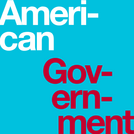
American Government is designed to meet the scope and sequence requirements of the single-semester American government course. This title includes innovative features designed to enhance student learning, including Insider Perspective features and a Get Connected Module that shows students how they can get engaged in the political process. The book provides an important opportunity for students to learn the core concepts of American government and understand how those concepts apply to their lives and the world around them. American Government includes updated information on the 2016 presidential election.Senior Contributing AuthorsGlen Krutz (Content Lead), University of OklahomaSylvie Waskiewicz, PhD (Lead Editor)
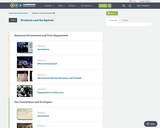
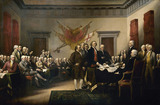

This is the first unit in a high school course that is designed to be used in lieu of the traditional textbook based Government class in public high schools.
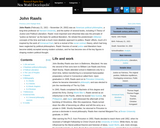
John Rawls (February 21, 1921 – November 24, 2002) was an American political philosopher, a long-time professor at Harvard University, and the author of several books, including A Theory of Justice and Political Liberalism. Rawls' most important and influential idea was the principle of "justice as fairness" as the basis for political liberalism. He refuted the predominant Utilitarian concepts of the time and took a much more idealistic approach to politics. Rawls' efforts, much of it inspired by the work of Immanuel Kant, led to a revival of the social contract theory, which had long been neglected by political philosophers. Rawls' theories of social justice and liberalism have become widely accepted among modern scholars, and he has become one of the key figures in shaping modern political thought.
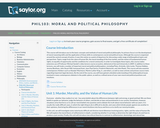
This course introduces students to the basic concepts and methods of moral and political philosophy. Its primary focus is on the development of moral reasoning skills and the application of those skills to contemporary social and political issues. Upon successful completion of this course, students will be able to: Discuss several major theories of justice and morality, including utilitarianism, libertarianism, social contract theory, deontology, and the ethics/politics of virtue; Demonstrate how moral and political dilemmas are handled differently by each set of theoretical principles; Develop their analytical skills through interpreting the consequences of various moral principles and revising principles to correspond with their own conceptions of justice; Discuss the relationship between morality and politics; Formulate their own positions concerning moral and political principles, especially in regards to particular issues discussed in this course; Discuss the origins of western democratic politics and constitutional government; Address a range of difficult and controversial moral and political issues, including murder, the income tax, corporate cost-benefit analysis, lying, affirmative action, and same-sex marriage. (Philosophy 103)

The goal of this course is to explore and develop plans of action for improving the job and career opportunities for today and tomorrow’s workforce. If we take the right actions we can shape the future of work in ways that meet the needs of workers, families, and their economies and societies. To do so we first have to understand how the world of work is changing, how firms can compete and prosper and support good jobs and careers, and how to update the policies and practices governing the world of work.

This class will be constructed as a lecture-discussion, the purpose being to engage important theoretical issues while simultaneously studying their continuing historical significance. To enhance discussion, three debates will be held in class. Each student will be required to participate in one of these debates. Each student will also be required to write three short papers. Class participation is essential and will be factored into the final grade.
The course will portray the history of theory neither as the history of architectural theory exclusively, nor as a series of prepackaged static pronouncements, but as part of a broader set of issues with an active history that must be continually probed and queried. The sequence of topics will not be absolutely predetermined, but some of the primary issues that will be addressed are: pedagogy, professionalism, nature, modernity and the Enlightenment. Classroom discussions and debates are intended to demonstrate differences of opinion and enhance awareness of the consequences that these differences had in specific historical contexts.